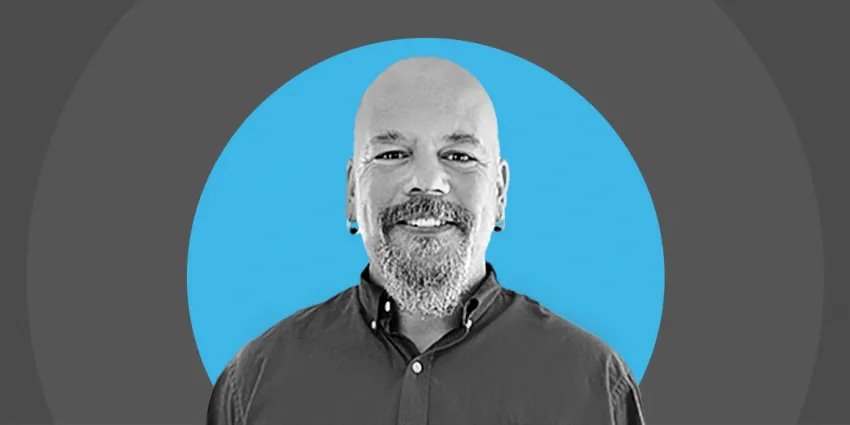



This article is part of a series about MOBE Guides and the work they do.
Name: Ned
Before MOBE: Studied anthropology and herbal medicine, worked in holistic pharmacy, and earned a master’s degree in nutrition
Years at MOBE: 3
The future of health care is happening now.
Most businesspeople know that physically and mentally healthier employees are more productive. But the health plan providers and employers that engage with MOBE are especially forward-thinking. They want people to show up to work feeling good about themselves. Why? Because those people find purpose and joy in the work they do. They’re more committed to their jobs and do better work. It’s a good return on investment—for the people and the organization. At MOBE, we facilitate this process in several ways.
We help people become a better version of themselves in life and at work
As a MOBE Guide, I help people prioritize taking care of themselves. For example, some learn to pay attention to the signals in their bodies—such as when to eat or when they're full, whether foods are helping or hurting them. Others learn that getting up from the desk at work—and moving around a little bit—will make them refreshed and more efficient.
When people begin to honor those messages from their bodies, they start to make commitments to improve their health. Once people get the hang of it, they dive in. It's like a snowball effect. They start by making a few little changes and then it builds. Suddenly participants want to learn lots of new things because it makes them feel like a better version of themselves.
We’re here to help when there’s a roadblock.
My main role as a Guide is to help people get to their health and well-being goals. However, one of the first conversations I have with participants is helping them understand that when you start to make changes, there will be setbacks along the way. It's not a linear process. When there's a roadblock, I’ll be there to help them explore the ways around it.
Just as important, when there’s a setback, I help participants be kind to themselves. As humans, we tend to beat ourselves up when we make a mistake. So, when a participant says, “Oh, botched my resolution and I started drinking soda pop again.” I say to them, “That's all right. We're human. We have these setbacks, and we can learn from them.” When I frame it as a learning opportunity, it helps encourage people to get back on track.
We use technology compassionately.
Part of my calling to do this work is really caring about people—even if we’re not in the same room together. MOBE Guides use technology to communicate with our participants throughout the country in two unique and compassionate ways: Our participant sessions (conducted over the phone) and the MOBE Health Guide app.
First, let’s discuss the phone sessions. When I joined MOBE, I wondered why we weren’t using video chats with participants. But it makes sense in a lot of ways. Sometimes when you're looking at people face-to-face, you might feel judged. My job is to support participants without making any judgments. Additionally, participants sometimes open up and share their hearts about what's going on. It's very special that they do that, but it might not happen as easily if it was on a video service. Phone calls allow participants to feel free to be themselves. I like to say, jokingly, that sometimes when I’m talking to the participant on the phone, I can hear the light bulb go off when they get excited about the changes they’re making. It’s a wonderful experience.
The MOBE Health Guide app helps us stay in contact with participants between calls. In addition to administrative elements—such as scheduling appointments—there are many ways participants can interact with their Guides or Pharmacists through the app. As a Guide, I use the app to share articles and videos that provide more detail on topics that we discussed on the phone. There are also inspirational stories and videos that I can share. Participants can send us updates or questions, too. They can even shoot a question to their Pharmacist if they have a question about a medication.
We make a difference for participants and companies.
The human, one-to-one conversations between Guides and participants create a connection that leads to a profound difference in people’s lives. And as those participants get healthier, their health plans and employers will be healthier, too.